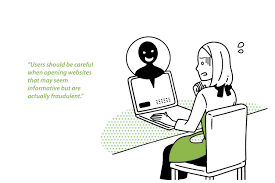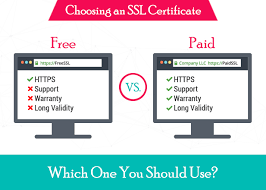What is SSL Certificate
An SSL certificate, which stands for Secure Sockets Layer certificate, is a digital certificate that facilitates the secure transmission of data between a user’s web browser and a website’s server. SSL certificates are crucial for establishing a secure and encrypted connection, ensuring that sensitive information remains confidential and protected from unauthorized access during online transactions.

Table of Contents
The Key components of an SSL certificate include:

- Encryption Keys: Certificates contain public and private encryption keys. The public key is used for encrypting data, and the private key is kept confidential on the server to decrypt the information.
- Digital Signature: The certificate includes a digital signature from the Certificate Authority (CA) that verifies the authenticity of the certificate. This signature ensures that the SSL certificate can be trusted.
- Information about the Certificate Holder: SSL certificates contain information about the entity or organization that owns the certificate, such as the domain name, company name, and other identifying details.
- Validity Period: SSL certificates have a defined validity period, typically ranging from a few months to several years. They need to be renewed before expiration to maintain secure communication.
Why Should it need SSL Certificate?

SSL/TLS is essential for securing online communication. It encrypts data exchanged between a user’s browser and a website’s server, preventing unauthorized access to sensitive information like login details. The use of digital certificates ensures the authenticity of the server, building user trust. SSL/TLS also safeguards against tampering, providing data integrity. It mitigates the risk of man-in-the-middle attacks, enhancing overall security. Compliance with regulations, SEO benefits, and the prevention of browser warnings further underscore its importance, making SSL/TLS a fundamental component for a secure and trustworthy online experience.
Is there a difference between a paid SSL Certificate and a free one?

Yes, there can be differences between paid and free SSL (Secure Sockets Layer) certificates. SSL certificates are used to secure the communication between a user’s web browser and a website’s server, ensuring that the data transmitted is encrypted and secure. Here are some key differences between paid and free SSL certificates:
- Validation Level:
- Paid Certificates: Typically, paid SSL certificates offer higher levels of validation. This can include Extended Validation (EV) certificates, which involve a more rigorous validation process, requiring the certificate authority to verify the legal existence and identity of the website owner.
- Free Certificates: Free SSL certificates often provide Domain Validation (DV) or Organization Validation (OV), which have less stringent validation requirements. DV certificates only verify that the person requesting the certificate has control over the domain.
- Warranty:
- Paid Certificates: Some paid certificates come with a warranty, which means that the certificate authority provides financial compensation to the website owner in case of a security breach or incorrectly issued certificate.
- Free Certificates: Free certificates usually do not come with a warranty.
- Issuing Authority:
- Paid Certificates: Issued by well-known and established Certificate Authorities (CAs). Browsers and devices typically trust these CAs by default.
- Free Certificates: Issued by CA providers that may not be as widely recognized or trusted. While many free certificates come from respected CAs like Let’s Encrypt, some organizations may choose less-known providers for cost savings.
- Validity Period:
- Paid Certificates: Often have longer validity periods, such as 1-2 years, before needing renewal.
- Free Certificates: Usually have shorter validity periods, often 90 days, but can be automatically renewed.
- Additional Features:
- Paid Certificates: Some paid certificates may come with additional features, such as support for wildcard domains, multiple domains, or additional server licenses.
- Free Certificates: Free certificates typically offer basic encryption and may not include advanced features without additional cost.
- Support:
- Paid Certificates: Generally come with a higher level of customer support, including phone support and faster response times.
- Free Certificates: Support options may be limited, and users may need to rely on community forums or documentation.
It’s essential to consider your specific needs and the level of trust and security required for your website when choosing between paid and free SSL certificates. Many websites, especially small or personal sites, find free certificates from reputable providers like Let’s Encrypt to be sufficient, while larger enterprises or sites handling sensitive data may opt for paid certificates for the additional features and assurances they provide.